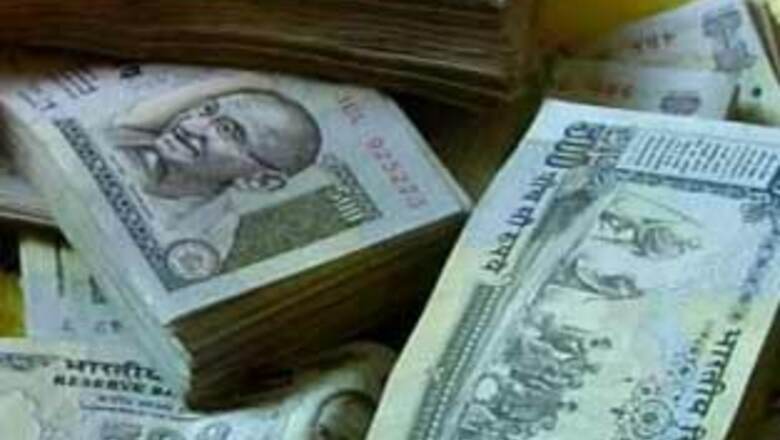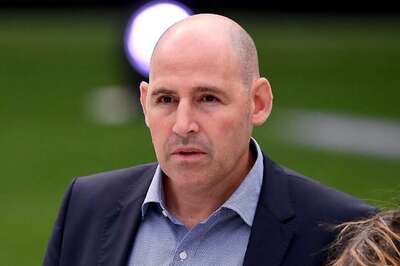
views
Washington: The International Monetary Fund (IMF) has lowered India and China's growth projections for 2009 to 5 per cent and 6.75 per cent respectively as it forecast world growth falling to its lowest level since World War II.
"We now expect the global economy to come to a virtual halt," said IMF Chief Economist Olivier Blanchard as IMF Wednesday released an Update to its World Economic Outlook together with an update to its Global Financial Stability Report.
World growth is projected to fall to just 0.5 per cent in 2009, its lowest rate in 60 years, with financial markets remaining under stress and the global economy taking a sharp turn for the worse, sending both global output and trade plummeting, the IMF said in its latest assessment of the world economy.
Advanced economies will experience their sharpest contraction in the post-war period, the Update said. The IMF expects real activity to contract by around 1.5 per cent in the United States, 2 per cent in the euro area, and 2.5 per cent in Japan.
Though more resilient than in previous global downturns, emerging and developing economies will also suffer serious setbacks. For example, growth is expected to slow to 6.75 per cent in China and 5.1 per cent in India, it said.
While growth projections for India for 2009 have been lowered by 1.2 per centage points than predicted last November, its growth rate is still expected to go up to 6.5 per cent in 2010, only .03 points lower than that forecast earlier.
In the case of China, the growth projections for 2009 have been lowered by 1.8 points, but its growth rate is expected to go up to 8 per cent in 2010, 1.5 points lower than that forecast earlier.
Global growth is projected to rebound in 2010 to 3.0 per cent after falling sharply to just 0.5 per cent in 2009, when measured in terms of purchasing power parity. The 2009 world growth forecast has been revised downward by 1.7 per cent compared with the last IMF projection last November.
Despite wide-ranging policy actions by governments and central banks around the world, financial strains remain acute, pulling down the real economy, the IMF said.
The Update echoed comments by IMF Managing Director Dominique Strauss-Kahn that a sustained economic recovery will not be possible until the banking sector is restructured and credit markets are unclogged.
The crisis in financial markets-which began in 2007 among sub-prime mortgages in the United States but has to spread to other markets and to much of the rest of the world-has resulted in a global recession that also continues to worsen.
Blanchard also stressed that there is no "one-size-fits-all" policy mix.
Some countries have more fiscal and monetary space than others.
PAGE_BREAK
"In this respect, it is welcome that some emerging economies now have more space for policy easing than in previous downturns and are making use of it," he said.
India must grow at 7 pc
India should be able to maintain economic growth of around 6.5-7 per cent in the 2009/10 fiscal year but needs to ramp up infrastructure spending to boost growth, Planning Commission's deputy chairman, Montek Singh Ahluwalia, said on Wednesday.
Growth in India, Asia's third-largest economy, has fallen from rates of about 9 per cent in the past three years, as high borrowing costs at home and recessions in key overseas markets have hit demand for manufactured goods, cars and property.
The Reserve Bank of India (RBI), the central bank, on Tuesday cut its forecast for gross domestic product growth in the 2008/09 fiscal year ending March 31 to 7 per cent, which would be the slowest pace in six years.
"If we're somewhere between 6.5 to 7 (per cent) this year, we could probably end up doing the same thing next year," Ahluwalia said.
Maintaining such momentum would depend in part on global financial markets starting to recover around the middle of the year, adequate fiscal stimulus and a pickup in private investment, Ahluwalia said in an interview on the sidelines of the annual meeting of the World Economic Forum.
Cutting interest rates further would not be critical to reviving growth, he said, as the central bank has already cut policy rates by 350 basis points since October and left banks with plenty of cash. "We desperately need a lot of investment in infrastructure," he said.
"It's the thing most likely to lead to a crowding in of private investment, rather than a crowding out." Ahluwalia said that the government should not be overly concerned about drastically reducing its budget deficit next year from the anticipated level of roughly 8 per cent of GDP this year. "You don't have to go back to 3.5 (per cent), you can easily do that later," he said.
"We should aim at a deficit that's lower than in the current year, suggesting that we're beginning to turn around, and all of the additional deficit above what would normally be the norm should be devoted to investment in infrastructure."
Ahluwalia said he was hopeful that the higher deficits would not lead to ratings downgrades, adding that the government did not have plans to issue sovereign debt on international markets. "The key issue is, these fiscal deficits are not the result of fiscal irresponsibility starting from equilibrium," he said.


















Comments
0 comment